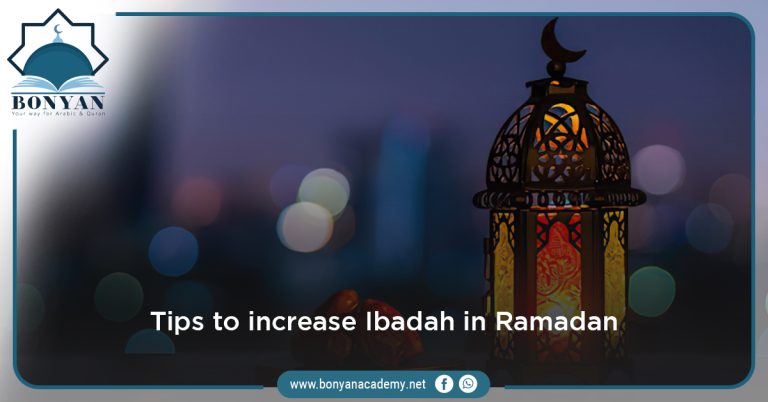Ramadan is the month in which the Quran was revealed to Prophet Muhammad (ٍP.B.U.H) through the angel Gabriel on Laylatul Qadr, which is one night in the month of Ramadan.
During Ramadan, it’s important to grow spiritually and do our best to get closer to Allah. One of the best ways to do that is to increase Ibadah and follow some of the Sunnah of the prophets.
So in this Article, we’ve rounded up a list of Ibadah in Ramadan you can do at home to bring out the best of you.
Ibadah in Ramadan
Ibadah or ibada is an Arabic word meaning service or servitude. In Islam, ibadah is usually translated as “worship”, and ibadat is the plural form of Ibadan which refers to Islamic jurisprudence (fiqh) of Muslim religious rituals.
Ramadan is the month of the Quran and intensive Ibadah or worship, so we can be closer to Allah by bodies, spirits, souls, and minds.
Ibadah in Ramadan starts with fasting which is the best means to purify your mind and soul. As it not only strengthens your body but also your soul.
Fasting also establishes Taqua in our hearts which gives us the power in our body and spirit to resist the temptation of evil or human desire.
So every day of Ramadan is under the blessing of Allah and the prophet Muhammad, as the Quran was revealed in this holy month to the prophet (P.B.U.H).
How to increase Ibadah in Ramadan?

During Ramadan, all Muslims worldwide try their best to get closer to Allah by increasing Ibadah in Ramadan. So there are useful ways to make the most out of your Ramadan this year.
1. Recite the Quran
As we mentioned before, the Quran was revealed in Ramadan to the prophet Muhammad peace and blessing be upon him. So when reading the Quran during Ramadan the good deeds are multiplied. As the reward for each letter you read in the Quran is multiplied by ten.
Some Muslims in Ramadan make goals to finish the Quran within 30 days of fasting. Others who memorize the Quran can complete it in less time.
So whether the amount of Quran you read, simply reading the Quran is a great source of mind calming and spiritual healing.
So if you want to make the Quran a part of your Ibadah in Ramadan, you can take some time after each prayer to read juz or more of the Quran.
2. Perform Taraweeh prayer
Taraweeh is One of the most famous things about Ramadan. It is prayed after Isha and there are 20 Rakah of Taraweeh with 10 salams followed by 3 Rakah of witr. And If missed, it is not to be made up.
The basic purpose of Taraweeh is to listen to the Holy Quran Because most People have memorized the Quran. In addition to listening to the Quran you also perform prayers so are also rewarded for that.
3. Praying Qiyaam in Ramadan
Praying qiyaam is one of the greatest Ibadah in Ramadan employing which a person can draw closer to Allah in this month.
Also, there are some Hadith that speak specifically about praying qiyam in Ramadan and describe the virtue of doing so.
So we should be keen to pray qiyaam al-layl in Ramadan in a congregation and to stay with the Imam until he finishes praying.
In this way, the worshiper will attain the reward for praying the whole night, even if he only spends a short part of the night in prayer. And Allah is the Owner of the great bounty.
4. Remembrance of Allah as an Ibadah in Ramadan

As Muslims, we have to worship Allah in general, but during Ramadan, we should remember Allah day and night. The Quran says, by remembering Allah, your heart will feel tranquility. For example, when you feel guilty after doing bad things, recite “astaghfirullah” in your heart.
Or When you feel life is so unfair and you begin to blame God, recite “SubhanAllah” And so on. When someone remembers God, Allah will remember him too. Beyond doubt, when God remembers someone, it will entail many benefits for him.
5. Increasing Ibadah in Ramadan by doing Zakat
‘Zakat’ means increment of good deeds or decrement to bad deeds. The idea to give sadaqah in Ramadan is to get a magnified amount of good deeds.
The output of Sadaqua is Zakat. By the way, Zakat does not mean to give money only. There are many types of deeds included in the Act of Zakat:
- Increment of good deeds which can be without money or with money/Wealth
- decrement of bad deeds ( not on your hand): doing good deeds or with money/Wealth as sadaqah or as Zakat.
- Good deeds by the money/Wealth for the seek of Allah.
- Sadaqah or Haque (money/Wealth sessional and unsessional).
- Kaffara ( with money or Physical hardship/sawm).
- Simply doing any Good deeds ( Hasanat).
6. Knowing what is allowed and not during Ramadan
In general, everything that is prohibited in Islam isn’t allowed during Ramadan. The fact that we keep for the whole day doesn’t just mean that we don’t have to eat or drink only.
But it means that we have to also restrain ourselves from watching bad things, doing bad deeds, hearing bad things, listening to music, backbiting, and all other activities which are prohibited in Islam.
If we perform any of such activities during fasting, There is a 90% chance that our fast will be invalid. The Holy month of Ramadan comes only once a year and the only purpose of it is to show a Muslim how to live life according to Islam
In this holy month, Satan is imprisoned by Allah so that we do not get indulged in any kind of sin because of him. Ramadan is just like a trailer of the movie.
For one month (The holy month of Ramadan), we are restricted to do certain things and after the month of Ramadan, we are supposed to continue living in the same manner. So we have to take this advantage and increase Ibadah in Ramadan as much as possible.









